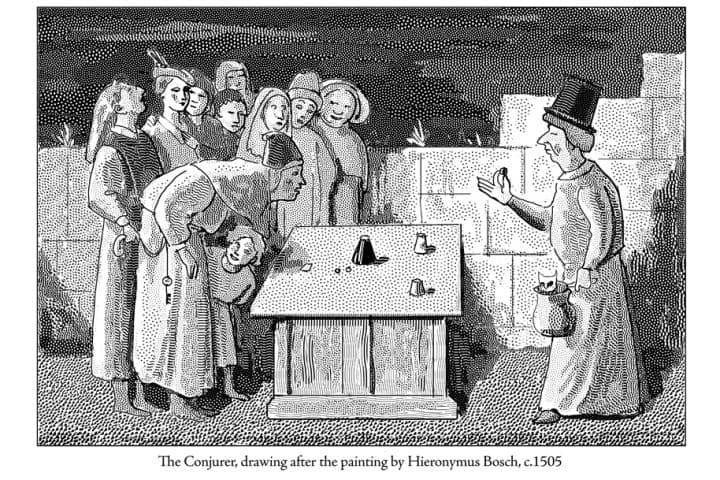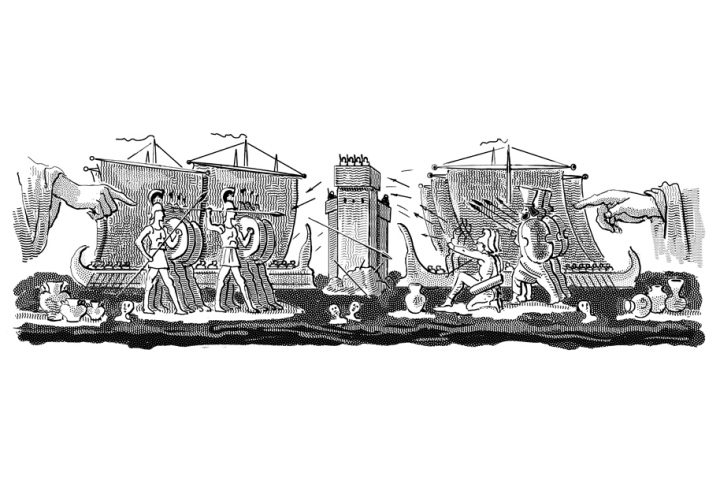Books Reviewed
The United States is engaged today in an amorphous, seemingly endless war in the Middle East—or more accurately, in an ever-widening theater of conflict fanning out from the Middle East. Even a president as resolutely allergic to the use of American military power as Barack Obama has been unable to extricate the U.S. from this manifest quagmire, in spite of all efforts by the administration to give the appearance of doing so. Not only that, but 15 years of this war do not seem to have improved the American position in the region; in some ways, quite the contrary. The so-called Global War on Terror proclaimed by the George W. Bush Administration following the attacks of September 11, 2001, eventually visited retribution on Osama bin Laden, the author of those attacks; yet al-Qaeda as an organization has stubbornly refused to die. Indeed, it is now in competition with an even more bloodthirsty Islamist terrorist organization in the form of the Islamic State (ISIS), as well as various subsidiaries and franchises of the Islamist brand throughout wide swaths of Africa and even parts of South and Southeast Asia. And these organizations have shown themselves increasingly capable of projecting their barbarism into Western Europe and the United States itself.
And then there is Iraq and Afghanistan. What President Obama initially described as our “necessary” war against the terrorist-harboring Taliban regime in Afghanistan continues to be waged irresolutely by an administration desperate to disengage our (much reduced) contingent of American troops there but prevented from doing so by facts on the ground. In Iraq, Obama’s attempt to liquidate the ill-starred American involvement by 2012 ended in abject failure with the emergence of ISIS and its rapid occupation of much of Sunni Iraq, including the important city of Mosul. Since then, the administration has grudgingly reintroduced small numbers of American soldiers to stiffen Iraqi spines and reverse these losses. Moreover, a new theater of conflict has emerged over the past six years in Syria. The administration’s ignominious failure to enforce its own “red line” over Bashar Assad’s use of chemical weapons against rebel forces only helped enflame and protract a grotesque civil war in which U.S. intervention of a substantial sort now seems increasingly inevitable.
* * *
How to explain all this? What stakes after all does the United States have in this unhappy part of the world that can justify such a profligate outlay of blood and treasure? The answer to this question is not altogether obvious. Traditionally, American interest in the Middle East seemed to be motivated by two things: oil, and the state of Israel. After 9/11, the rise of Islamist terrorism directed at the United States and the West in general has clearly changed the equation. Yet American dependence on Gulf oil has been dramatically lessened by the expansion of oil and natural gas production in North America in recent years; and while the U.S. may be said to have an existential commitment to the security of Israel, the Israelis seem for the most part quite capable of defending themselves for the foreseeable future. As for the terrorist threat, it is far from clear that the best way to contain or defeat it is by sending large American ground forces into the region. The Obama Administration has developed a formula for countering terrorism through a combination of drone strikes and special operations forces that has proved surprisingly effective, though for various reasons it remains largely opaque to the American public. American resources would probably be better spent to improve local nations’ internal security forces and apply them more energetically against a threat that, after all, concerns them as much as it does us.
* * *
Andrew Bacevich’s America’s War for the Greater Middle East, a broad survey of American military involvement in the region over the last four decades, breaks little new ground. The book is, in fact, not so much a history as an extended argument against the fecklessness of American policy and actions. He seeks to answer four questions: what motivated the U.S. to act as it has? What have the civilians responsible for formulating policy and the soldiers responsible for implementing it sought to accomplish? Regardless of their intentions, what actually ensued? And finally, what were the consequences of it all?
Bacevich is something of an oddity in the academic international security fraternity. A former U.S. Army colonel and emeritus professor at Boston University, in recent years he has veered sharply to the left in his view of American foreign and military policy. In his book The New American Militarism (2005), he traced many of the ills the country has experienced since the end of the Cold War to an increasing militarization of U.S. foreign policy, such that the use of force is seen not as a last resort but as the most readily available and effective tool in the American policy toolkit, all of this being reinforced by the ascendancy of the uniformed military within the American national security policy establishment. Among other things, he seconds the argument made commonly on the Left (although not so much during the Obama years) that America’s regional combat commanders, functioning like Rome’s notorious “proconsuls,” have exercised a malign influence over national policy at the expense of the State Department and other civilian agencies. This theme is muted in his new book, but remains very much in the background.
Much of Bacevich’s indictment is hard to quarrel with. His account begins with the so-called Carter Doctrine of the late 1970s, which first publicly articulated an American commitment to the security of the Persian Gulf, in the wake of the Arab oil embargo of 1973 and, more immediately, the Soviet invasion of Afghanistan in 1979 and the fall of the shah of Iran in the same year. There can be little doubt that this move was something of a strategic leap in the dark. The Reagan Administration did not cover itself with glory, to say the least, in its deployment of Marines to Lebanon in 1982, slaughtered a year later in the single most deadly terror attack on Americans apart from 9/11. Bill Clinton’s well-meaning humanitarian intervention in Somalia in 1993 also ended ignominiously. As for the Iraq war, in spite of the virtuoso performance of the U.S. military in its initial takedown of Saddam Hussein’s regime, there can be no question that the resulting occupation was catastrophically mishandled. (In this case, the responsible “proconsul” was in fact a State Department official, L. Paul Bremer, enabled by a gross failure of politico-military leadership in Washington.) Unquestionably, there are few informed observers today who would send troops to Iraq again even with the information available at the time. Though the long-term impact of the fall of Saddam and the creation of the semi-functioning democracy that succeeded him cannot yet be adequately assessed, the cost in American lives and treasure has almost certainly been wholly disproportionate to any benefits.
* * *
All this being said, Bacevich’s relentless negativity becomes wearying. Haunted, one might venture to guess, by the specter of Vietnam, the author seems fatalistically resigned to American failure, in the Middle East and in its other misguided imperial adventures. He therefore has virtually nothing to say about the way forward. One can argue about the wisdom of the war in Iraq, but the question now is: what do we do in the face of ISIS and the continuing incapacity of the Iraqi government and military? Then there is the broader issue of resolving the conflict in Syria, and beyond that, containing Iran and thwarting its nuclear ambitions. Bacevich echoes familiar criticisms of the Bush Administration’s failed efforts at “nation-building,” yet he seems not to recognize the serious nation-building that now needs to be done throughout the region—not only in Syria and Iraq but in Afghanistan, Yemen, Libya, Somalia, and elsewhere—if we are to make real headway against the Islamist threat. It is not at all clear that the United States has nothing to contribute. Yet Bacevich is right that whatever course the next administration decides to pursue in the region, it will need much greater clarity of purpose, better understanding of the security environment, and less reliance on its military hammer, than has been shown by our last two presidents.



